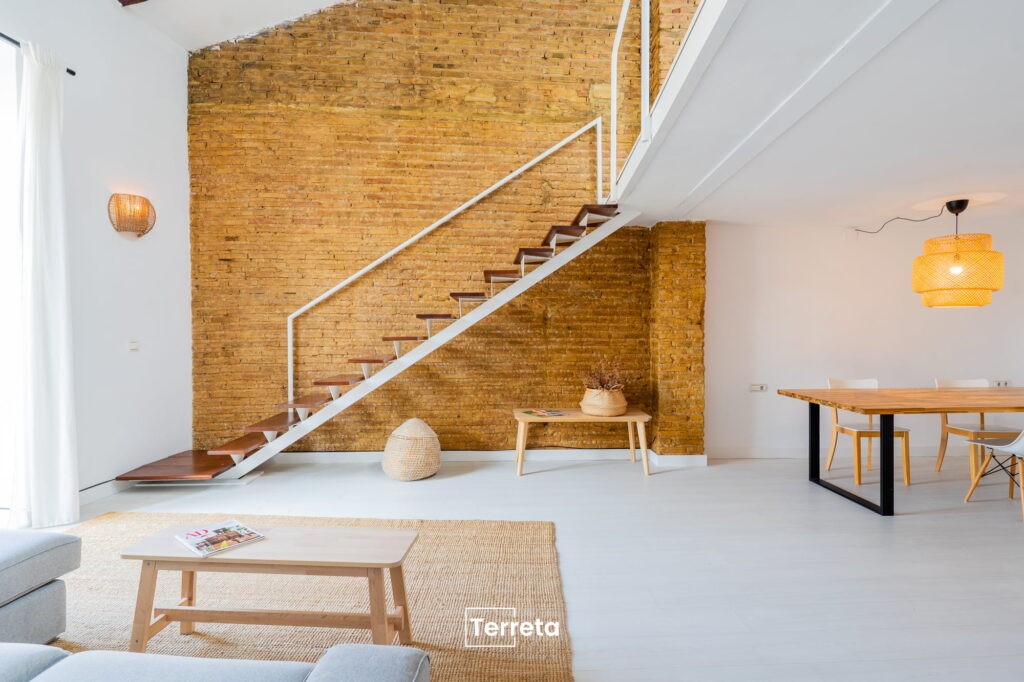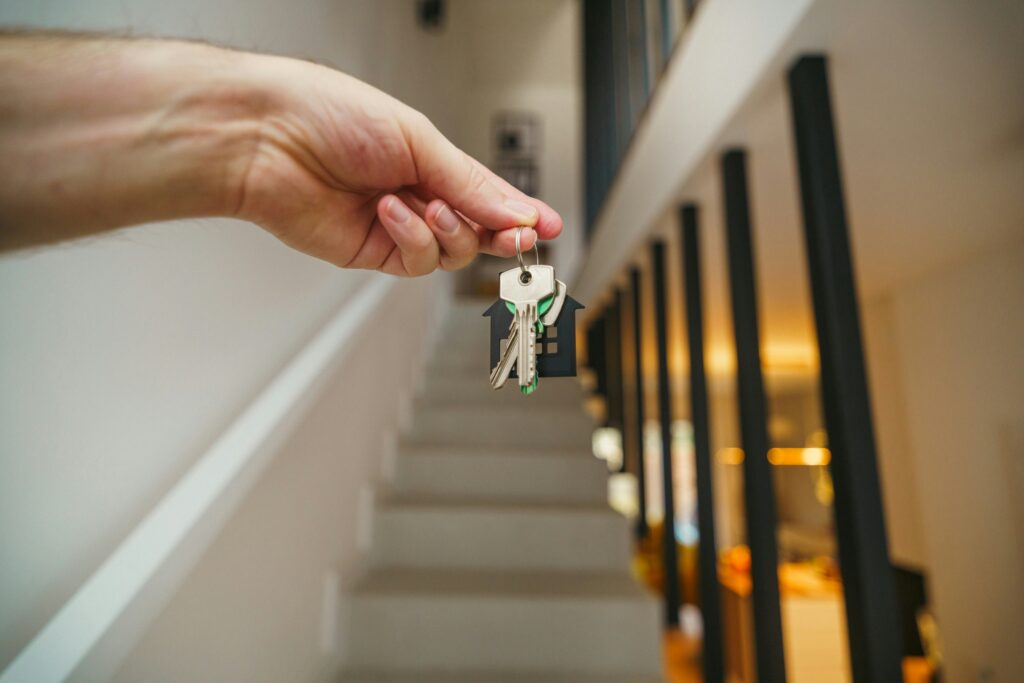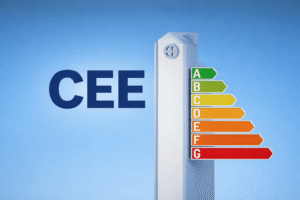Rates, banks, documents, taxation, tips... everything you need to know before buying.
Introduction
Non-residents live less than 183 days a year in Spain. For Spanish banks, these profiles are perceived as riskier (geographical distance, complexity of recovery procedures) and the conditions for accessing credit are logically less advantageous. However, faced with the growing number of foreign investors, Germans in the lead (16.6%), they have no choice but to offer this service.
Rates, banks, documents, taxation, tips for borrowing in Spain when you don't live there, Terreta Spain tells you everything.
| Anyone living more than 183 days a year in Spain or having their economic and/or family interests in Spain is considered a tax resident. Below this threshold: non-resident status. |
Which Spanish banks lend to non-residents?
Most of the major Spanish banks now lend to foreigners, but here is our shortlist with a direct link to the webpage for foreigners.
| BANK | SPECIFICITY |
| BBVA | The loan does not exceed 70% of the property value. BBVA offers a loan term of 30 years in some cases. |
| Santander | The loan is called "Mundo Mortgage". Loan of 60% of the appraised value (tasación) as a general rule. Service in English, French, Portuguese, Italian, Polish. |
| CaixaBank via HolaBank | Innovative and multilingual online service, assists in obtaining the NIE. The loan does not exceed 70%. Reduced term to 15 years for Bulgaria, Czech Republic, Hungary, Poland, Romania. |
| Bankinter | Online. No mixed rate. Fixed rate only offered to EU residents. 25 years maximum. Responsive customer service. |
| Sabadell | The site offers a credit simulator accessible to non-residents. |
| UCI | A specialized bank for foreigners with offices in all major cities. One of the few to accept loans over 30 years. ⚠️Do not mention investment to your contact, but rather the purchase of a second home. ValenciaCalle Colón, 60, 6ª C-D +34 912 06 37 90 MadridC. Amaltea, 32, Arganzuela, 28045 Madrid+34 912 06 37 90 BarcelonaRambla de Cataluña, 20, entresuelo 2ª+34 912 06 37 90 |
| Welcome Hub of Sabadell Bank | Ideal if you plan to purchase through a SCI or through a SL. Carrer de Girona, 107, 08203 Sabadell, Barcelona, Spain+34 937 11 71 44 |
General conditions for obtaining a loan in Spain
Before starting your loan application in Spain, keep in mind that banks apply stricter criteria to non-residents.
Eligibility conditions
To obtain a mortgage in Spain, you must:
- Be of legal age and under 75 years of age at the end of the loan.
- Have a NIE (Foreign Identification Number), it is mandatory to purchase a property.
- Reside in a country with a strong currency (euro zone, United States, United Kingdom, Switzerland, etc.)
- Provide proof of stable and regular income (generally between €2,000 and €2,500).
- Not exceed a debt ratio of 30% of your net income (all debts included).
- Have 40% savings: generally, 30% for the down payment and 10% to cover the purchase costs.
- Official translations may be required depending on the bank.
The stronger the profile, the better the access to credit conditions.
The usual banking conditions
In general, banks lend to foreigners up to 70% Loan-To-Value (loan/value ratio), except in exceptional cases with solid guarantees or a European co-borrower. The lower the LTV, the lower the risk for the bank and the better the conditions
- For example, for a property at €200,000, a loan of €140,000 gives an LTV of 70% (because 140,000 / 200,000 = 0.70)
The conditions vary depending on your tax status:
| CRITERIA | RESIDENTS | NON-RESIDENTS |
| Rate | Around 2.5% on average, sometimes less (July 2025) | between 3 and 5% (July 2025) – depending on the profile |
| Down Payment | 20 to 30% of the property price | 30 to 40% of the property price |
| Financing | 80% of the maximum price | 70% of the maximum price |
| Loan term | Up to 30 years | Often 20 years (sometimes 25, with exceptions for BBVA in certain cases) |
| Opening commission | Often 0% | Often 0.5% (negotiable) |
The figures are indicative and may vary from one bank to another.
Good to know:
- The financed amount is always based on the lower of the purchase price and the property's appraised value.
- The conditions vary depending on the bank, but a specialized broker greatly facilitates access and rate negotiation.
Practical case
Discover in pictures the project of one of our clients, a French tax resident and now owner of this incredible duplex in Ruzafa, one of Valencia's flagship districts.


The project in figures:
- Purchase price €330,000
- Surface area 68m2 Carrez, 90m2 usable
- 2 bedrooms
- Projected rent: €1700/month
- Monthly payment: €980/month
The financing conditions obtained through one of our brokers specializing in this type of profile are excellent.
- Loan over 25 years.
- 70% of the price financed.
- Interest rate 2%.
Contact us, our teams will take care of your file.
What types of loans are available in Spain?
- Fixed rate (often preferred by foreigners for its stability)
- Variable rate indexed to the Euribor (cheaper but unstable)
- Mixed rate (fixed for 5 years then variable)
In Spain, variable rate loans have always been the majority (70-80%), but following the post-COVID rate hike, fixed rate loans have become more popular.
In the summer of 2025, rates are attractive in Spain, and the trend is downward.
They are around 2% for residents and range from 3 to 5% for non-residents. Please note that each situation is different, and the Euribor (which determines variable and mixed rates) is volatile. Check at time T.
What should you know by nationality?
French
For French investors as well as for all foreigners, it should be kept in mind that banks are more inclined to favor profiles with stable, easily justifiable income or with a permanent employment contract.
List of documents required to obtain a loan in Spain
Each bank may have specific requests, but as a general rule, you will be asked for:
- Identification document
- Proof of address
- NIE number (mandatory)
- Bank statements
- Tax assessment notice (better if for 2 years)
- Pay slips or proof of income
- Proof of contribution (minimum 30%)
- A credit report issued by the Bank of France may be requested (to assess financial stability).
- Nota simple of the property (extract from the property registry).
- Sales agreement / purchase promise (if already signed).
Please note:
- You can also consider combining a Spanish loan with a French loan.
- You can supplement a Spanish property purchase with a consumer credit loan in France.
- If you choose to borrow in France, the bank will require you to pledge an asset as collateral (e.g., a debt-free property). Pledging does not replace the personal contribution, but it can reduce the need for one. It may involve notarial acts or certified translations.
If you have an investment project in Spain but do not live there, contact our experts.
British (post-Brexit)
Since Brexit, British citizens are treated as non-residents of the European Union. In other words, they are often asked for more guarantees, and above all, rates are higher and conditions are stricter.
The list of required documents is the same as for French borrowers.
For the credit report, you should contact: Equifax UK, Experian UK, TransUnion UK.
Please note:
Applications are stronger if they are backed by recognized British financial products, and cross-border loans are sometimes possible.
Some British banks offer international loans in pounds sterling. Pay attention to the exchange rate.
An alternative solution would be to release the equity (the difference between the value of the property and the loan balance) of a British property. The idea is to obtain liquid funds without selling the property and then buy in Spain via a bridging loan or a remortgage.
To access this type of solution, you must prove sufficient solvency.
Concrete example:
If you own a property in the United Kingdom worth £500,000 and you still have £200,000 to repay on your loan:
- You have £300,000 in equity.
- You can "release" part of this sum — for example, borrow £100,000 using your property as collateral.
Americans
Americans also have access to Spanish loans, and again, the documents required are the same as for other nationalities.
For IRS tax returns (Internal Revenue Service, US taxes), remember to provide them for a minimum of 2 years. The credit report must be issued by Equifax, Experian or TransUnion, the 3 main credit bureaus in the United States.
Swiss, Belgian, Luxembourg, Canada
For these nationalities, the process is quite similar to that of the French. Acceptance of the application is conditional on the stability of income and the origin of funds.
In Switzerland, Belgium, and Luxembourg, pledging is an option to consider.
- In Switzerland, the credit report is provided by ZEK (Zentralstelle für Kreditinformation).
- In Belgium, the National Bank of Belgium (BNB) is responsible for it.
- In Luxembourg, the credit report is generated by the Central Bank (BCL).
- In Canada, the credit report is provided by: Equifax Canada, TransUnion Canada.

Practical information
Useful links
The list of official translators
The Terreta Spain simulator to calculate the total cost of your project
Free financing brokers (paid by the banks):
- Gibobs.com
- iAhorro.com
- Idealista hipotecas
- Connectcrédit, a French broker accustomed to working on cases with pledging.
Official documents
- Once the application is accepted, you will receive the FIPRE, the Ficha de Información PREcontractual. A standardized document that summarizes the essential elements of the loan and facilitates comparison between banks.
- Once the loan is accepted, the bank will provide the FEIN, the Ficha Europea de Información Normalizada (the European Standardized Information Sheet). The FEIN commits the bank to the proposed conditions.
What are the timeframes for processing your loan application in Spain?
- Allow 4 to 12 weeks for the complete process.
What costs should you anticipate (excluding the mortgage)?
This is a central question in Spain. Beyond the price of the property, the cost of the renovations, the cost of the agency (if you use a real estate specialist on site, which we recommend), you will need to budget for costs:
- They amount to between 10 and 15% of the property price, depending on the region in which you buy and the specific characteristics of your project (for the notary, taxes, etc.).
- To go further, read our sheet on property purchase costs in Spain.
| Concrete example: For a British resident who wants to buy a property worth €300,000: Contribution of 30% = €100,000 Average purchase costs of 12% = €36,000 Advance: 136K |
The risks of borrowing in Spain
- Please note that in Spain, the buyer remains personally liable for life for the balance of a mortgage, this is the responsabilidad patrimonial universal. No walk away like in America, in other words, it is impossible to voluntarily abandon your property when the debt exceeds the value of the property.
- Floor clauses (cláusulas suelo) are illegal if they are not explicitly specified in the loan offer.
- The dación de pago : this is an extreme option, but it exists. It consists of returning the property to the bank in exchange for cancellation of the remaining debt. This is not always accepted, especially if the borrower is a foreigner; it's assessed on a case-by-case basis.
Best practices
- To anticipate in case of atypical income: some banks may require a letter signed by your accountant to clarify atypical income (dividends, freelancing, stock options, etc.).
- Good practice: always compare offers from several banks before committing.
- Anticipate timelines and prepare your file before you start visiting properties.
- Never reserve a property before obtaining financing, under penalty of losing the amount of the deposit you have paid. Indeed, the clause of non-obtainment of the loan is generally refused in Spain.
- In Spain, loans are granted in euros, so it is necessary to anticipate exchange rate variations if you are a tax resident of a country outside the EU.
- Get support from a specialized local lawyer
Ready? To learn everything about buying property in Spain, read our complete guide.
Need a hand to unlock your financing in Spain? Terreta Spain supports you from A to Z, even if you do not speak Spanish. Tell us about your project.
FAQ – Mortgage in Spain for non-residents, the complete guide.
Can a non-resident obtain a mortgage in Spain?
Yes, it is possible. Spanish banks grant real estate loans to non-residents, but the conditions are stricter than for residents: the required down payment is higher (generally 30 to 40% of the property price), and the amount borrowed generally does not exceed 60 to 70% of the purchase or appraisal value.
What are the main eligibility criteria for a non-resident?
To grant a loan to non-residents, banks generally require a stable net monthly income (minimum €2,000 – 2,500), a debt ratio limited to 30-40%, a good credit history in the country of origin, a substantial down payment (30 to 40% of the property price), and obtaining a NIE (Foreign Identification Number).
What documents are required for a loan application?
The documents generally requested are the passport (or identity card), the NIE, proof of income (pay slips, bank statements, tax returns), proof of down payment, the Nota simple of the property (legal descriptive sheet), the preliminary sales agreement or promise to purchase (the arras). Some documents must be translated into Spanish by a sworn translator.
In Spain, what are the financing conditions for non-residents?
- Amount financed: 60 to 70% of the value of the property.
- Down payment: 30 to 40% + 10 to 13% of additional costs (notary, taxes, etc.).
- Loan term: generally 20 to 25 years, repayment before age 75.
- Interest rate: between 3% and 5% depending on the situation and profile (July 2025).
Sources: Idealista, Banco Santander, Wise, HSBC, UCI, Bankiter, Caixabank, Sabadell







